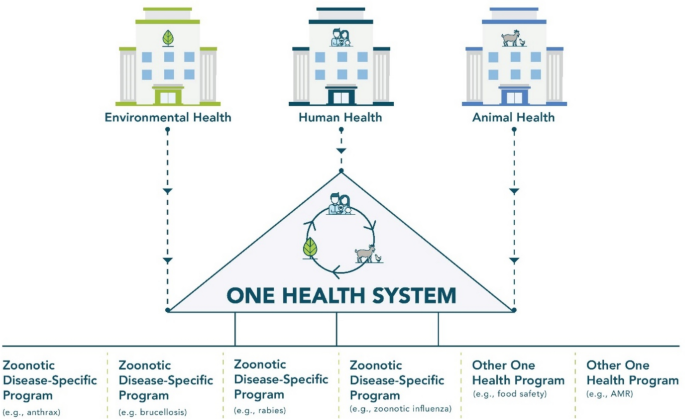Excellent Reasons On Choosing Holistic Pet Supplements
Wiki Article
What Are The Most Common Health Issues That Affect Animals?
The medical conditions of animals differ based on the species, age, as well as the overall health of the particular animal. Common conditions for animals include
Parasitic Infections- Fleas ticks, worms and mites can infest animals, causing a variety of health problems. It is essential to avoid parasites by ensuring that your pet has regular check-ups. Skin conditions like allergies, dermatitis, and hot spots can cause discomfort and irritation in animals.
Ear infection- Ear infection is a common problem for pets and cats with floppy ears. It can cause discomfort, and also hearing issues.
Dental Problems: Dental issues such as periodontal disease, tooth decay and gum infections can impact the overall health of an animal.
Respiratory Infections Respiratory Infections: Upper respiratory infections like pneumonia or bronchitis, can be found in animals, especially those living in stressed or overcrowded areas.
Arthritis & Joint Issues - Many older animals, including the large breeds of dogs, are susceptible to joint and arthritis issues. These can result in an increase in pain and reduced mobility.
Obesity. Dogs who are overweight are more prone to developing diabetes, heart disease, arthritis, and other health issues.
Gastrointestinal Disorders- Dietary issues, infections or other issues can cause diarrhea, vomiting and other digestive issues.
Cancer: Humans and animals can both develop cancer. Treatment options could include radiation, chemotherapy or surgery.
Prevention and early detection of wounds and injuries is vital to the health and welfare of animals. A balanced diet, frequent veterinary checks, vaccinations and parasite control can keep many of the typical medical problems in animals. A veterinarian should also be immediately contacted if your pet is showing symptoms of disease. Find the Top petz park for site advice.

Which Are The Most Effective Vitamins, Probiotics Or Supplements For Cats And Dogs?
The selection of vitamins, supplements and probiotics to give your dog needs to be based on their specific needs, as well as any recommendations given by a veterinarian. Certain dogs may benefit from additional supplements, even though it's essential to provide a nutritious and healthy diet for your pet. Here are a few of the most popular supplements for your dog and their possible benefits:
Multivitamins. A high quality dog food should have all the nutrients, vitamins, and minerals your dog needs. Multivitamin supplements could be beneficial if you dog has special dietary needs or limitations. If you are giving your pet a vitamin supplement, make sure that it is specifically formulated for these specific needs. Too much of some vitamins could cause toxicity. Omega-3 Fat Acids- Omega-3 acids like fish oils can help to support the health of your skin and hair help reduce inflammation and improve joint health. They are typically advised for dogs suffering from allergies to the skin, skin issues and arthritis.
Probiotics are beneficial microorganisms which help support digestion health. They accomplish this by ensuring a healthy balance in the microbiome of your gut. These are commonly employed to alleviate digestive issues like diarrhea, as well as to boost the immune system.
Glucosamine and Chondroitin - These two supplements can be used to help reduce the symptoms of arthritis and improve joints in dogs.
It's essential to talk your vet before giving your dog any kind of supplement because they will be able to offer advice that is specific to your dog's requirements and needs. The amount of supplements you give your dog can differ depending on factors like the weight of your dog, its age and health. Dosing too much can be harmful. It is important to use supplements made by reputable manufacturers. Contact your veterinarian right away if there are any strange reactions or signs. A well-balanced and veterinarian-recommended diet is typically the best way to meet your dog's nutritional needs, and supplements should only be used when necessary and under professional guidance. Take a look at the most beautiful pet skin and coat with herbs for more recommendations.

How Common Are Kidney Failure, Skin Allergic Reactions And Yeast Infection In Dogs? What Treatments Are Available?
There are numerous diseases that can impact your dog, such as yeast infections and allergies to skin. They are different in severity according to breed, age, and overall health. This article will provide a brief overview of these ailments, along with their prevalence and potential treatment.
The prevalence of kidney disease/renal disease Although it is less prevalent kidney disease is a possibility, it can be a problem for dogs who are older. It could be an acute disease (with a sudden beginning) or chronic (developing slowly).
The signs of kidney infection include weight loss, thirst increase and urination, as well as lethargy.
The treatment is contingent on the what kind of kidney disease you are suffering from. Acute kidney failure requires intensive care. Chronic kidney disease is treated with diet changes and medications to manage blood pressure, and other treatments to support kidney function. The early detection and treatment are vital because it's a disease that progresses.
It is crucial to be aware because these ailments may be affecting certain dogs, but not all dogs. Furthermore, the frequency of these conditions will vary between breeds and breeds. Regular visits to the vet as well as a balanced diet and measures to prevent it (such the control of fleas, good hygiene, etc.) can help reduce the likelihood of. You should consult your veterinarian to get an accurate diagnosis of any health conditions that might impact your dog, for example the presence of skin allergies or kidney issues. Early intervention could result in better outcomes and a better quality of life for your pet. Check out the Best pet herbal supplements for service dogs for blog tips.
